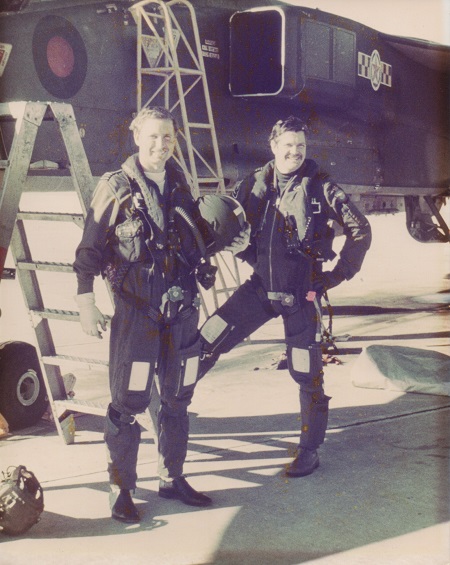The first of a new series of articles, we are delighted that David Mawdsley will be sharing his extensive experience with our audience, starting today.
By David Mawdsley
Moving on with Collaboration in SMS Data Sharing from the FSF Safety Summits in Dublin (2017), Seattle (2018) and Taiwan (2019)
One outstanding item from my recent frequent flyer article was to talk more about the impact on my life of an accident involving a large transport aircraft where I was first on the scene. As a young engineering officer on shift that evening I had signed off 7 of the 20 “Fit to Fly” entries in the aircraft’s tech log. No longer was this military life I had chosen an exciting adventure.
For I learned about stress from that and more importantly much about my airworthiness responsibilities and my part in the accountability chain. You can imagine perhaps what I thought when I later took over as a newly promoted senior engineer of an F4 Squadron to find during the handover week that my predecessor, about to be promoted to wing commander, was tearing up the job cards raised at the pilot debrief, not once but repeatedly. To be continued ….

David (left) after a flight from Sardinia to Cyprus and return (!) in which he lost all radio contact with ATC, the Inertial Nav/Attack System so called “dumped” and the plane experienced excessively high engine temperatures.
When teaching Safety Management Systems at Cranfield University two generations later, I was sharing a human factors class with Graham Braithwaite, who to this day, inter alia, is professor of safety and accident investigation. I checked myself for slipping into a so-called “war story” but Graham, urged me to carry on and so such “stories” became a norm. After all, as per William Shakespeare: “Experience is a jewel, and need be seen as such, for its often purchased at an infinite rate (price)”.
So much of my career in aviation has been concerned with reacting to accidents and incidents. I get together from time to time with the Flight Safety Foundation International Advisory Committee for discussions, always enriched by colleagues with infinite experience. It’s always a delight when the next generation of safety professionals come aboard, people like Captain Mike Gillan from United Airways, since those IASS Data Sessions I’ve been working in a small sub-group of the Committee entitled “Digital Data”. Mike leads the Group and will know that I’ve pressed hard in this for an action plan, not unlike the Global Aviation Data Roadmap challenge which has already attracted a lot of attention on Yocova.
In this Digital Data Subgroup we’ve prepared a paper, some extracts of which I would like to share within the Yocova Community. I’ve selected those parts which I’ve been directly concerned with writing, leaving out that which is the preserve of the Flight Safety Foundation. My simple objective here is to share the latest thinking and where the industry has got to with Digital Data.
“The systematic use of digital data to produce risk forecasting is an essential element in moving to a strategic approach in the growth of SMS and safety cultures. Most data collected today is in a digital format and can be readily analyzed using a wide range of platforms.
Each segment of the aviation industry has different needs for data. Major users of digital data include governments (and associated regulators), airlines, manufactures, and independent providers. At pace, commercial space, unmanned aerial systems (UAS) and advanced air mobility (AAM) are entering the arena.
Currently, each of these groups are inclined to develop their own protocols and safeguards as to the use of data. Even more threatening as we move forward into the big data era there is strong evidence of a prevailing lack of alignment of standards and ethics across the industry. As in any grand system design it is much easier to align data standards, protocols, and security sooner rather than later.”
“These practices include safety, confidentiality, just culture, and protection of human subjects. There are already many uses of digital data in an aviation industry, which is on the cusp of an exciting transformation with the use of big data in the realms of machine learning and artificial intelligence. Inevitable and profound changes in data usage in safety departments include resilience (Safety II,) risk forecasting, and cyber safety/security but there is so much more to embrace.”
“It has been found that key areas for improvement are about understanding the threats, errors, hazards and the company defences and how combinations of these issues become more severe. Account should be taken of other initiatives in this arena such as ADS-B Data for advanced Safety Analysis and its industry’s stance regarding the availability of Safety Data in the criminalization of accidents where legal actions can have unintended consequences.
Most importantly is the message coming from the airlines that we must manage external as well as internal risk, which means knowing more about what could happen to you from others in the industry. Aviation safety practitioners together with their colleagues in the data science disciplines must drive towards more effective predictive analytics”.
“The industry needs to focus on a shared strategy and harmonization in the big data era; development of an implementation plan should be a primary objective. The development of the plan should be appropriately resourced with a project manager at its hub. As such collaboration among key stakeholders would be paramount, looking to attract several States with mature SSPs in addition to key representative stakeholders such as IATA, ALPA, Boeing, Airbus and other key players from across the value chain.”
What I can say further, is that the aim is to involve expertise of the kind which is assembling on Yocova and collaborate in the way that Yocova is looking to do. I would be pleased to take these up in the @SMS Data Sharing (Private) Group and in my work with the FSF Digital Data Sub-Group.



